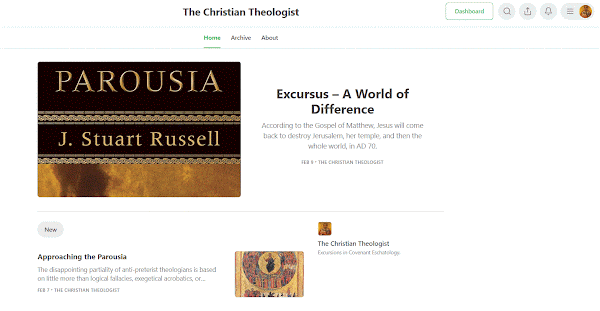In That We can All be Certain
Our lack of empirical certainty of the text forms, and transmission histories, of the Old Testament books is not a problem for the Church, because we only need to be certain of those OT passages cited in the New Testament.
Accepting the Unknown and Unknowable
The following brief excerpt is from my recent critical study on the textual uncertainty of the Old Testament texts. The foundational research for this study was done previously for my article called “Did Daniel write Daniel?”.
Titus 3:16–17
All Scripture is breathed out by God and profitable for teaching, for reproof, for correction, and for training in righteousness, that the man of God may be complete, equipped for every good work.
Daniel 7:13–14
I saw in the night visions, and behold, with the clouds of heaven there came one like a son of man, and he came to the Ancient of Days and was presented before him. And to him was given dominion and glory and a kingdom, that all peoples, nations, and languages should serve him; his dominion is an everlasting dominion, which shall not pass away, and his kingdom one that shall not be destroyed.
Our empirical certainty of the text forms, and transmission history, of the books of the OT goes no further back than the second century before the Christian era. In the absence of hitherto undiscovered archaeological evidence to corroborate the historical and literary claims the texts make about themselves, they are, and will remain, largely unknown and unknowable.
The text forms, and transmission history, of the book of Daniel before 200 BC are just as uncertain as the rest of the OT texts, but because of the significance of the Son of Man prophecies to the messianic mission of Jesus, the debates are especially divisive between so-called “liberal and conservative” scholars. Liberal scholars scoff at the idea that the Daniel prophecies were divinely inspired, or written prior to the events they purport to predict, whereas conservative scholars, by virtue of their high view of Scripture, are compelled to believe they are genuine prophecies of the final triumph of the everlasting Kingdom of the Messiah Jesus.
As with Christian scholars, so too with the larger, non-academic segment of Christianity. The more invested one’s personal faith is in the certainty of the OT texts, the more uncomfortable one becomes when confronted by the substantial lack of concrete literary and archaeological evidence there is to support it. Depending on how this lack of evidence for the canonical OT books is presented, it can be a terrible blow to the more naïve, or immature, believer’s confidence in the entire Biblical record.
Yet, however understandable this loss of confidence might be, there really is no reason why the faith of any Christian should be seriously disturbed by these OT textual uncertainties. That is because we only need to be certain of the OT texts that were used by the writers of the New Testament texts. It is in the NT that the OT verses, prophecies, and events which are crucial to understanding the meaning of the messiahship of Jesus are cited, referenced, and alluded to. It is in the NT that these important Christological OT passages are confirmed by the Messiah himself, through the testimony of his hand-picked apostles, and their own personal disciples and companions. Comparatively, the text forms, and transmission history of the NT texts are absolutely certain, and the confirming fulfilment of Jesus’ two post-event predictions found in these texts – his Resurrection from the dead, and his Parousia in AD70 – makes their attendant claims about his being the prophesied Son of Man similarly certain.
Think of it this way. God himself was aware of every change, every editorial emendation, every scribal error, and every flat-out invention that went into the various OT texts being used by Jesus and his contemporaries. God sent Jesus at the time he did, and Jesus confirmed, denounced, and ignored the doctrines and practices that he did, with full understanding of all the different forms of Scripture there were at that time. When Jesus claimed to be the Son of Man, he knew fine well what it meant to his audience, and what was then believed, and taught, about the book of Daniel and the Son of Man prophecies. It didn’t matter whether they were written five centuries before Jesus confirmed them, or five decades; all that mattered is that Jesus confirmed them, and then fulfilled them. Of that we can all be certain.




Comments
Post a Comment